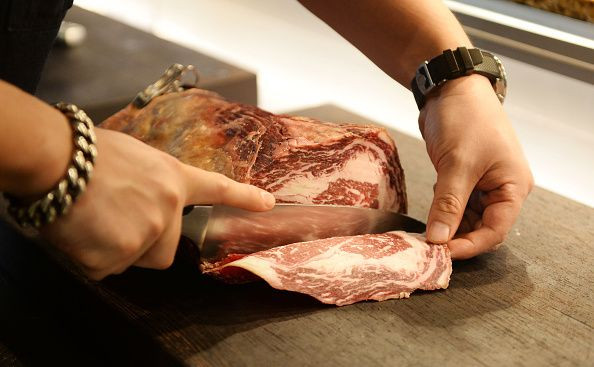Richest Countries Eat More Meat: Do Rising Incomes Make People More Carnivorous?

A new study on meat consumption worldwide has found that the more people earn, the more likely they are to include meat in their diets — and get fancier with it as incomes increase too. The amount of meat consumed in 2017 has reportedly gone over 330 million tons, from just 70 million tons in the early 60s, suggesting that in addition to a growing population, purchasing power also plays a significant role.
A special research commissioned by the BBC observed that as the worldwide average annual earnings more than tripled over the past 50 years, so did our ability to buy and consume different types of meat. According to the 2013 figures that the study looked into, people in Western countries, where incomes are typically higher, recorded high levels of meat consumption. This number is especially high in Australia and the United States, where the amount of meat consumed per person per year was more than 100 kilos. The researched likened this to half a cow or about 50 chickens.
Conversely, people living in lower-income countries such as Nigeria, Ethiopia and Rwanda ate less meat, averaging at 9 kilos, 7 kilos and 8 kilos, respectively, per person per year. In middle-income economies such as Brazil and China (which are seeing a steady increase in earnings), meat consumption is also growing. This is expected to rise even more in the coming years.
The cost of producing meat products is high, compared to having a plant-based diet from ingredients you can grow from your yard yourself. This explains why access to it remains limited to those who can afford it. In fact, there are even different types of meat classified according to grade, so even the middle-income earners have probably not tasted an A5 wagyu steak in their life. According to the same study, the top countries that consistently consumed the most meat over the past half-century are the U.S, Brazil, Canada and the UK.
A related article by the Seattle Times reported that the average American will have consumed 222.2 pounds of poultry and red meat in 2018. This is mostly attributed to changing diet preferences that favored protein over other nutrients to support fitness goals. The high demand also applies to egg and dairy products such as butter and cheese.
According to the World Resources Institute, national and global diets will have to shift to a more plant-based one come the year 2050 in order to stay within sustainable environmental limits without compromising the billions of people that need to eat.
© Copyright IBTimes 2025. All rights reserved.





















